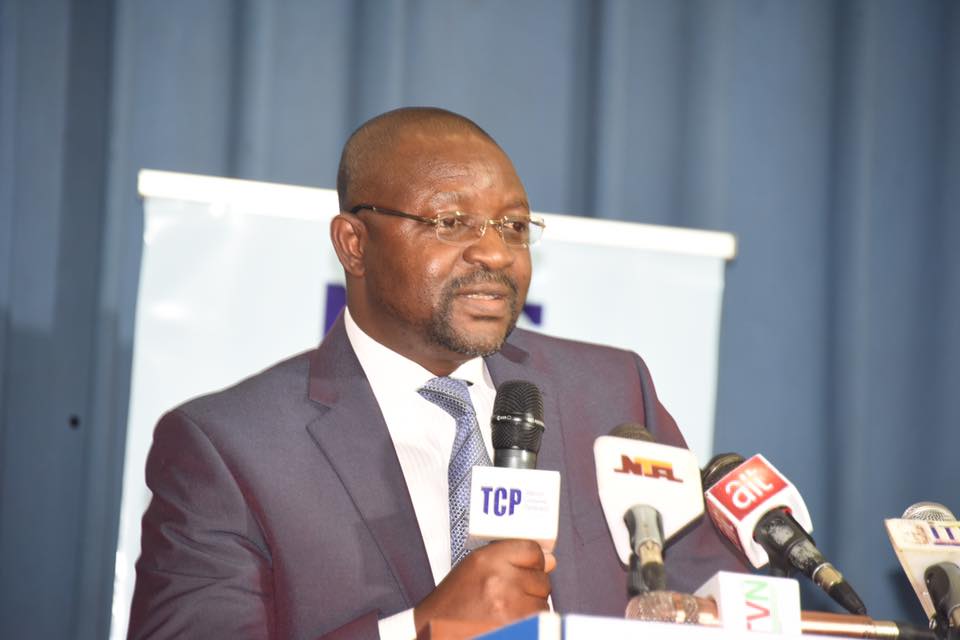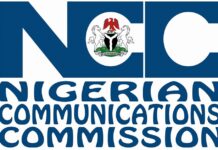No telecoms subscriber in Nigeria would be disconnected or suffer service disruptions as a result of its recent order to permit the disconnection of indebted operators from other operators’ networks.
The Nigerian Communications Commission gave the assurance to the over 160 million phone subscribers in Nigeria this week in Abuja.
NCC’s Executive Commissioner for Stakeholder Management Mr. Sunday Dare who spoke for NCC said the approval given by the NCC for the disconnection of indebted operators form other operators networks on account of interconnect debts was not for any network to disconnect subscribers as being wrongly presented in some media. The order only allows some creditor networks to restrict services to debtor networks.
Dare said, “The NCC is a consumer-centric regulator; the protection of our consumers and the sustainability of the industry are the primary drivers of our activities. So in this case, even before we granted the permission for disconnection, we had put some very stringent safety valves in place to protect consumers and ensure that they continue to enjoy uninterrupted service while we address the very serious issue of indebtedness in the industry”.
Giving a background to the issue of disconnection of networks, Mr. Dare stated that “over the years, the industry has been plagued with the very serious problem of interconnect and facility indebtedness. Some operators have racked up huge debts to others and have simply refused to pay. Now, we understand that there are ecosystem issues affecting all operators and we are daily working with all Stakeholders to resolve these issues, but the level of indebtedness in the industry is at an embarrassingly high level, and the whole telecoms industry is at risk of failure if we do not act”.
He stated further “this kind of problem should ideally not occur in an industry where over 90% of consumers are pre-paid. We had held several meetings with the parties and given several deadlines for the debtors to pay, to no avail. The Nigerian Communications Act of 2003 contains very strict consumer protection measures which we have continued to uphold, such as the requirement that no operator can disconnect another operator without the written approval of the NCC. But it appears that some operators were taken unfair advantage of this provision by racking up millions, sometimes billions of naira in debts to other operators, denying their creditors of funds to expand their networks and putting the industry in peril. Having done everything we could, including holding many meetings with the parties and brokering several payments plans to no avail, NCC has little choice in the matter but to grant the persistent requests of the creditor organisations to disconnect the chronic debtors in accordance with the Nigerian Communications Act and our Disconnection Regulations”, he said.
Further reassuring subscribers, Mr. Dare noted that “there are a number of inbuilt safety valves we are implementing to protect consumers. In the first place, we had published a notice alerting both the debtors and the general public of the impending order to approve disconnection. This was published in major newspapers a few weeks ago, and we hoped the debtors will regularize their position, but they did not. Under the law, the next step is to publish a pre-disconnection which we did earlier this week”.
“You will notice that in the Pre-Disconnection Notice, we gave another period of ten and/or twenty-one days for the debtors (depending on whether they are service networks or exchange operators) to pay, so as not to lose their interconnection rights. We expect that as responsible business people, the debtor organisations will either pay up or agree satisfactory payment plans with their creditors. This is another safety valve for consumers – it will ensure that they continue to enjoy uninterrupted service”
“However, the worst case scenario is that the debtors would fail to pay up after this grace period. Even in that case, we have built in yet another safety valve for consumers. If and when we grant a final disconnection notice, we will only permit one-way disconnection in the first case. This means that consumers on the debtor networks may have some difficulty receiving calls, but they will still be able to call out to other networks without restriction. Also, we have a very robust number portability system in place so that those who wish can port to other networks. But we are hoping it would not come to this”.














